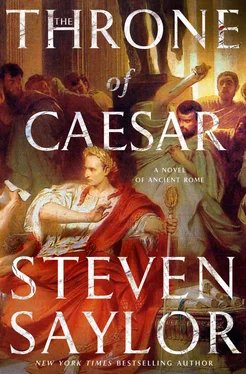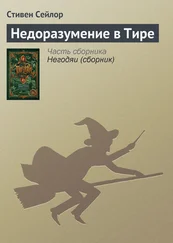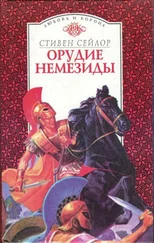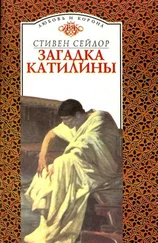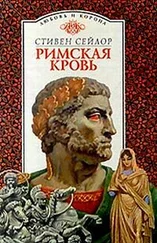Стивен Сейлор - The Throne of Caesar
Здесь есть возможность читать онлайн «Стивен Сейлор - The Throne of Caesar» весь текст электронной книги совершенно бесплатно (целиком полную версию без сокращений). В некоторых случаях можно слушать аудио, скачать через торрент в формате fb2 и присутствует краткое содержание. Год выпуска: 2018, Издательство: St. Martin's Press, Жанр: Исторический детектив, на английском языке. Описание произведения, (предисловие) а так же отзывы посетителей доступны на портале библиотеки ЛибКат.
- Название:The Throne of Caesar
- Автор:
- Издательство:St. Martin's Press
- Жанр:
- Год:2018
- ISBN:нет данных
- Рейтинг книги:5 / 5. Голосов: 1
-
Избранное:Добавить в избранное
- Отзывы:
-
Ваша оценка:
- 100
- 1
- 2
- 3
- 4
- 5
The Throne of Caesar: краткое содержание, описание и аннотация
Предлагаем к чтению аннотацию, описание, краткое содержание или предисловие (зависит от того, что написал сам автор книги «The Throne of Caesar»). Если вы не нашли необходимую информацию о книге — напишите в комментариях, мы постараемся отыскать её.
The Throne of Caesar — читать онлайн бесплатно полную книгу (весь текст) целиком
Ниже представлен текст книги, разбитый по страницам. Система сохранения места последней прочитанной страницы, позволяет с удобством читать онлайн бесплатно книгу «The Throne of Caesar», без необходимости каждый раз заново искать на чём Вы остановились. Поставьте закладку, и сможете в любой момент перейти на страницу, на которой закончили чтение.
Интервал:
Закладка:
“And who would dare to kill a demigod?” I muttered .
“What’s that?” said Tiro.
“Nothing. Talking to myself again. Something I seem to do quite often these days.”
As we approached Cicero’s house, I saw a brutish-looking guard standing outside the front door, a man with a face that could frighten small children to tears. My son-in-law nudged me and indicated another watchman pacing the roof. He and Davus acknowledged each other with small nods, as neutral bodyguards do. The guard at the door nodded to Tiro, kicked the door with his heel, and stepped aside. Not a word was spoken, yet the door opened for us the moment Tiro set foot on the stone threshold. There was yet another guard in the vestibule. The slave who had opened the door and closed it behind us remained out of sight, as if invisible.
Cicero had developed a mania for security over the years. Who could blame him? At the peak of his political career the tide had turned so viciously against him that he was driven into exile. His previous house on the Palatine had been burned to the ground. Eventually his exile was rescinded by the Senate and he was welcomed back. He moved into another house on the Palatine—and then was forced to flee the city when Caesar crossed the Rubicon and headed for Rome with an army. I vividly remembered visiting him the day he frantically packed his most precious scrolls and valuables, lost in a haze of despair. Now Cicero was back in Rome, pardoned by the Dictator, but clearly uncertain of the future and braced for any new reversal of fortune.
I spared a glance at the wax masks of Cicero’s ancestors in the niches of the vestibule, which unblinkingly watched everyone who came and went. They were a stern-looking bunch, and not very handsome. Some of them exhibited the chickpea-like cleft nose that had earned the family its distinctive cognomen.
Leaving his own bodyguard behind in the vestibule, Tiro led Davus and me past the shallow pool of the atrium and down a hallway to Cicero’s library. Tiro entered the room first. Cicero, seated and clutching a metal stylus and a wax tablet, hardly looked up. He appeared not to notice that Davus and I had also entered the room .
“Tiro! Thank Jupiter you’re back! I’ve been struggling with this passage ever since you left. Here, tell me what you think: ‘Why, the very word “Fate” is full of superstition and old women’s credulity. For if all things happen by Fate, it does us no good to be warned to be on our guard, since that which is to happen will happen, regardless of what we do. But if that which is to be can be turned aside, there is no such thing as Fate. So, too, there can be no such thing as divination—since divination deals with things that are going to happen.’ There. Is it clear enough?”
“Even I can understand it,” I said.
“Gordianus!” Cicero finally noticed me and flashed a broad smile. “And…” He frowned as he tried to think of the name. “Davus, isn’t it? By Hercules, you’re a strapping fellow, aren’t you?”
Davus grunted, at a loss for words, as he often was.
“You needn’t say anything, son-in-law,” I said. “That’s called a rhetorical question and requires no reply.”
Cicero laughed and put down his stylus and tablet. “Teaching him rhetoric, are you? Alas, too late, since there’s no use for it anymore. Please, all of you, take a seat!” A pair of young slaves produced chairs from various corners of the cluttered space, and then, at a signal from their master, left the room.
“You seem to be in a good mood,” I said, genuinely surprised. When I had last seen him, Cicero had the consolation of a teenage bride to distract him from the sorry state of the Republic, but that marriage had ended in divorce. Another blow had occurred at about the same time, when the light of his life, his beloved daughter Tullia, died in childbirth. On this Martius morning he seemed unaccountably cheerful.
“And why not?” he said. “Spring is almost here. Can’t you feel it in the air? And at long last I have the time and resources to do what I’ve wanted to do all my life: write books.”
“You’ve always written.”
“Oh, a trifle here and there, speeches and such, but I mean real books—long philosophic tracts and discourses, books that will stand the test of time. There was never opportunity for that kind of writing when I was busy in the law courts and the Senate, and certainly not when I was away from Rome, slogging from camp to camp, marching with Pompey to save the Republic. Alas, alas!” He sighed, then reached for another tablet. There were a great many of these stacked on small tables and tucked amid the shelves that housed the hundreds of scrolls that made up Cicero’s library. Apparently he jotted down any idea that occurred to him, and he needed many tablets. Grudgingly, I had to admire his ability to stay busy and find purpose after all the disappointments and disasters that had befallen him.
“Here, speaking of Pompey, listen to this.” He read aloud. “‘Even if we could foretell the future, would we wish to do so? Would Pompey have found joy in his three consulships, his three triumphs, and the fame of his transcendent deeds if he had known that he would be driven from Rome, lose his army, and then be slain like a dog in an Egyptian desert, and that following his death those terrible events would occur of which I cannot speak without tears?’” His voice quivered as he read the final words, but he smiled with satisfaction as he looked up.
“Not ‘like a dog,’” said Tiro. “Too harsh.”
“Oh? Should I remove it?” Cicero peered at the tablet. “Yes, of course, you’re right, Tiro, as you invariably are.” He scratched out the words with his stylus. “Pompey was a true believer in portents and omens, you know. He placed great reliance on divination by those Etruscan haruspices who poke about entrails, looking for odd spots or growths on this organ or that. A lot of good it did him. And you, Gordianus? Do you consort with haruspices?”
“I’ve known a haruspex or two in my time. There was one particularly favored by Caesar’s wife—”
“Which wife?” quipped Cicero. “His ex-wife, his current wife, or his Egyptian whore across the Tiber?” This last remark referred to Queen Cleopatra, who was making her second state visit to Rome and residing at Caesar’s lavish garden estate outside the city.
“As far as I know, Caesar has only one wife: Calpurnia. I was somewhat acquainted with her favorite haruspex, Porsenna—”
“Ah, that unfortunate fellow! Reading entrails didn’t save him from his sorry end, did it? More irony! Perhaps I should add his example to my discourse. She has another one now, you know.”
“I beg your pardon?”
“Calpurnia. She has another haruspex hanging about her house, telling her which days are safe for Caesar to be out and about, especially since he stopped using his bodyguards. Not that Caesar himself pays any attention to Spurinna, but he did make the fellow a senator, if you can believe it. An Etruscan diviner, in the Roman Senate! What would our forefathers make of that?” Cicero shook his head. “At least Spurinna comes from an old and distinguished Etruscan family. It’s those other new members of the Senate who gall me—the Gauls, I mean. Outrageous!”
With so many of the leading men of Rome killed in the civil war, the ranks of the Senate had been greatly depleted. To fill the chamber, Caesar had appointed hundreds of new senators, rewarding his supporters and allies, and not just men of Roman blood. With roughly half of the eight hundred or so senators appointed by Caesar, many of the older members complained that Caesar had rigged the odds, making sure that any vote in the Senate would be in his favor, now and for the foreseeable future. “How better to avoid another civil war?” Meto had said to me, defending the man who was his commander and mentor, and now everyone’s dictator.
Читать дальшеИнтервал:
Закладка:
Похожие книги на «The Throne of Caesar»
Представляем Вашему вниманию похожие книги на «The Throne of Caesar» списком для выбора. Мы отобрали схожую по названию и смыслу литературу в надежде предоставить читателям больше вариантов отыскать новые, интересные, ещё непрочитанные произведения.
Обсуждение, отзывы о книге «The Throne of Caesar» и просто собственные мнения читателей. Оставьте ваши комментарии, напишите, что Вы думаете о произведении, его смысле или главных героях. Укажите что конкретно понравилось, а что нет, и почему Вы так считаете.
